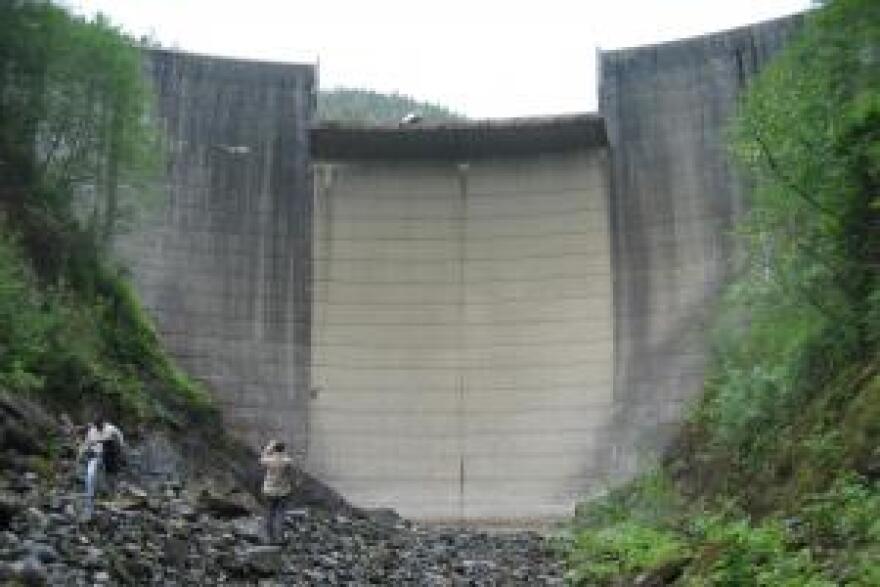Parts of Interior Alaska, like Fairbanks, have been seeing record cold temperatures this winter. But in Southeast Alaska, the frigid conditions have had a direct impact on the way people power their homes.
Juneau has been noticeably cold. There have been below freezing temperatures for the past week, which is unusual for this time of year.
Nancy Waterman said the frigid conditions got her thinking. She’s seen water trickling into nearby streams.
“So I wonder what the condition of our hydroelectric reservoirs. Is it all frozen? Is it available to us?” Waterman asked. “Should Juneau-ites be conserving now since the weather forecast is for another week?”
Alec Mesdag with Juneau’s electric utility, Alaska Electric Light & Power, said when it’s cold outside, nothing changes with the hydroelectric dam itself.
“What changes is all the water that in the summertime would fall and flow into a reservoir is now frozen up on the side of a mountain,” Mesdag said.
Juneau’s energy is supplied by four different lakes. Alpine water flows into each lake and when that water is released through turbines, you get electricity.
“That only works if we have water in those lakes stored up in order to do that,” Mesdag said.
So, Mesdag said the cold snap presents a two-fold problem: the water in the lakes is low and you’re likely cranking the thermostat at home.
At this point, Juneau doesn’t have to use its backup power. But that’s not the case in other parts of Southeast.
“As of this morning, we’ve burned 6,400 gallons of diesel,”Mark Adams said. He's the Ketchikan Public Utilities Operations Manager.
The city of about 8,000 has been running on diesel instead of hydropower since March 6. And it’s not the only one. Haines and Skagway have also been supplementing with diesel during the daytime.
Adams said it’s the second time this year the city has been forced to make the switch, due to the chilly weather.
“It’s pretty significant," Adams said. "Colder weather, folks are heating their houses and the wind also draws a lot of heat out so that’s a big factor,”
Adams said powering with diesel can be expensive. It’s caused a noticeable jump in the community’s electric bills.
Petersburg and Wrangell share the same electric utility. But Ketchikan draws most of its electricity from a different lake.
“Wrangell and Petersburg are colder than Ketchikan but we are significantly larger on our electric load,” Adams said.
Meanwhile, back in Juneau, Alec Mesdag is basking in glow of lights still powered by renewable energy. He can’t say with certainty that they won’t have to go on diesel this year. He said Juneau's at the mercy of the weather.
“And that’s true of any year,” Mesdag said.
Mesdag said Juneau looks like it’s going to be alright. But should we be waiting for the other shoe to drop? Or in this case, the level of the lake? Should we be conserving energy when it’s really chilly outside?
Mesdag we should always be thinking about conservation, regardless of the season.
“A lot of it actually comes down to what is your priority with how you use energy,” Mesdag said. “Some people prioritize how much their energy cost. Some people prioritize what the environmental impact of their energy consumption is and some people are just trying to get by.”
In Southeast, we may be able to get by with heating our homes less. The forecast shows warmer, rainy weather in the weeks to come.


